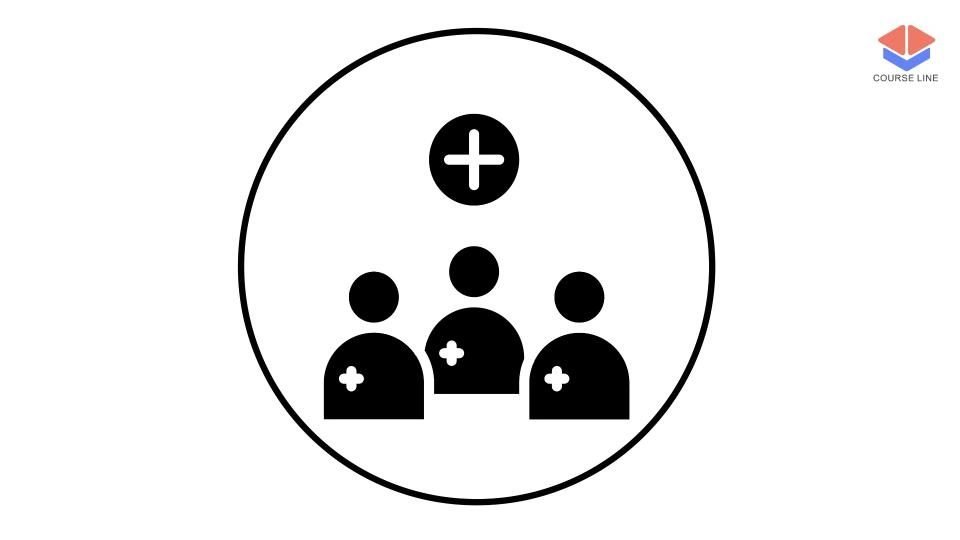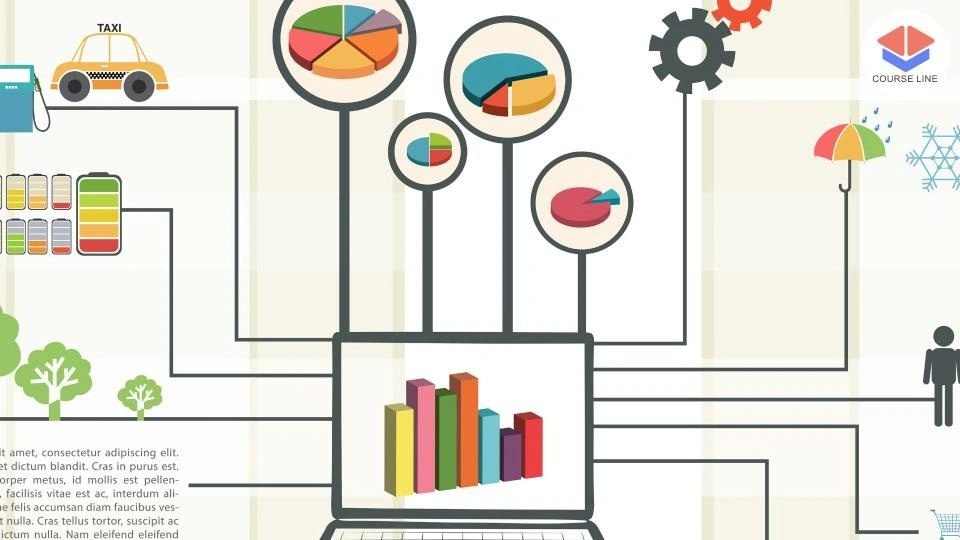Course Features
Price
Study Method
Online | Self-paced
Course Format
Reading Material - PDF, article
Duration
9 hours, 5 minutes
Qualification
No formal qualification
Certificate
At completion
Additional info
Coming soon
- Share
Overview
The Paramedicine Level 3 Advanced Diploma is a comprehensive training programme designed for individuals seeking to build a strong foundation in pre-hospital emergency care. This course explores the vital skills and knowledge required to work effectively in paramedical roles, combining clinical theory with practical training to ensure learners are well-prepared for the demands of the field.
The course begins with an introduction to the paramedic profession, covering the scope of practice, legal responsibilities, ethical considerations, and the importance of communication and teamwork in high-pressure environments. This foundational knowledge sets the stage for understanding the responsibilities and expectations of emergency medical professionals.
In-depth modules on anatomy and physiology provide learners with a solid understanding of key bodily systems, including the cardiovascular, respiratory, nervous, and musculoskeletal systems—critical for accurate patient assessment and intervention. Medical emergencies are covered extensively, with lessons focusing on the identification and treatment of common, cardiac, respiratory, neurological, and endocrine conditions.
Trauma management training equips learners with the ability to assess and treat injuries such as fractures, burns, and head or spinal trauma, while the pharmacology module introduces the principles of drug administration, emergency medications, dosages, and patient safety. Learners also study advanced life support, including ACLS and PALS, airway management, rhythm interpretation, and the use of defibrillators.
Special attention is given to treating diverse patient populations, including children, the elderly, pregnant individuals, and those experiencing behavioural or mental health crises. The course also addresses mass casualty incidents and disaster response, including triage procedures, incident command structures, and psychological first aid.
To support long-term success, the programme includes professional development content covering leadership, continuous education, patient safety, ethical dilemmas, and self-care. The final module features a clinical practicum, where learners apply their knowledge in simulated or supervised real-world environments through case studies, reflective practice, and practical rotations.
This diploma offers an ideal pathway for individuals aiming to enter the paramedicine field or support emergency response teams in healthcare, community, or disaster settings. With a blend of theoretical understanding and hands-on training, learners will graduate equipped to respond with competence and confidence in critical situations.
Who is this course for?
The Paramedicine Level 3 Advanced Diploma is a comprehensive training programme designed for individuals seeking to build a strong foundation in pre-hospital emergency care. This course explores the vital skills and knowledge required to work effectively in paramedical roles, combining clinical theory with practical training to ensure learners are well-prepared for the demands of the field.
The course begins with an introduction to the paramedic profession, covering the scope of practice, legal responsibilities, ethical considerations, and the importance of communication and teamwork in high-pressure environments. This foundational knowledge sets the stage for understanding the responsibilities and expectations of emergency medical professionals.
In-depth modules on anatomy and physiology provide learners with a solid understanding of key bodily systems, including the cardiovascular, respiratory, nervous, and musculoskeletal systems—critical for accurate patient assessment and intervention. Medical emergencies are covered extensively, with lessons focusing on the identification and treatment of common, cardiac, respiratory, neurological, and endocrine conditions.
Trauma management training equips learners with the ability to assess and treat injuries such as fractures, burns, and head or spinal trauma, while the pharmacology module introduces the principles of drug administration, emergency medications, dosages, and patient safety. Learners also study advanced life support, including ACLS and PALS, airway management, rhythm interpretation, and the use of defibrillators.
Special attention is given to treating diverse patient populations, including children, the elderly, pregnant individuals, and those experiencing behavioural or mental health crises. The course also addresses mass casualty incidents and disaster response, including triage procedures, incident command structures, and psychological first aid.
To support long-term success, the programme includes professional development content covering leadership, continuous education, patient safety, ethical dilemmas, and self-care. The final module features a clinical practicum, where learners apply their knowledge in simulated or supervised real-world environments through case studies, reflective practice, and practical rotations.
This diploma offers an ideal pathway for individuals aiming to enter the paramedicine field or support emergency response teams in healthcare, community, or disaster settings. With a blend of theoretical understanding and hands-on training, learners will graduate equipped to respond with competence and confidence in critical situations.
Requirements
The Paramedicine Level 3 Advanced Diploma is a comprehensive training programme designed for individuals seeking to build a strong foundation in pre-hospital emergency care. This course explores the vital skills and knowledge required to work effectively in paramedical roles, combining clinical theory with practical training to ensure learners are well-prepared for the demands of the field.
The course begins with an introduction to the paramedic profession, covering the scope of practice, legal responsibilities, ethical considerations, and the importance of communication and teamwork in high-pressure environments. This foundational knowledge sets the stage for understanding the responsibilities and expectations of emergency medical professionals.
In-depth modules on anatomy and physiology provide learners with a solid understanding of key bodily systems, including the cardiovascular, respiratory, nervous, and musculoskeletal systems—critical for accurate patient assessment and intervention. Medical emergencies are covered extensively, with lessons focusing on the identification and treatment of common, cardiac, respiratory, neurological, and endocrine conditions.
Trauma management training equips learners with the ability to assess and treat injuries such as fractures, burns, and head or spinal trauma, while the pharmacology module introduces the principles of drug administration, emergency medications, dosages, and patient safety. Learners also study advanced life support, including ACLS and PALS, airway management, rhythm interpretation, and the use of defibrillators.
Special attention is given to treating diverse patient populations, including children, the elderly, pregnant individuals, and those experiencing behavioural or mental health crises. The course also addresses mass casualty incidents and disaster response, including triage procedures, incident command structures, and psychological first aid.
To support long-term success, the programme includes professional development content covering leadership, continuous education, patient safety, ethical dilemmas, and self-care. The final module features a clinical practicum, where learners apply their knowledge in simulated or supervised real-world environments through case studies, reflective practice, and practical rotations.
This diploma offers an ideal pathway for individuals aiming to enter the paramedicine field or support emergency response teams in healthcare, community, or disaster settings. With a blend of theoretical understanding and hands-on training, learners will graduate equipped to respond with competence and confidence in critical situations.
Career path
The Paramedicine Level 3 Advanced Diploma is a comprehensive training programme designed for individuals seeking to build a strong foundation in pre-hospital emergency care. This course explores the vital skills and knowledge required to work effectively in paramedical roles, combining clinical theory with practical training to ensure learners are well-prepared for the demands of the field.
The course begins with an introduction to the paramedic profession, covering the scope of practice, legal responsibilities, ethical considerations, and the importance of communication and teamwork in high-pressure environments. This foundational knowledge sets the stage for understanding the responsibilities and expectations of emergency medical professionals.
In-depth modules on anatomy and physiology provide learners with a solid understanding of key bodily systems, including the cardiovascular, respiratory, nervous, and musculoskeletal systems—critical for accurate patient assessment and intervention. Medical emergencies are covered extensively, with lessons focusing on the identification and treatment of common, cardiac, respiratory, neurological, and endocrine conditions.
Trauma management training equips learners with the ability to assess and treat injuries such as fractures, burns, and head or spinal trauma, while the pharmacology module introduces the principles of drug administration, emergency medications, dosages, and patient safety. Learners also study advanced life support, including ACLS and PALS, airway management, rhythm interpretation, and the use of defibrillators.
Special attention is given to treating diverse patient populations, including children, the elderly, pregnant individuals, and those experiencing behavioural or mental health crises. The course also addresses mass casualty incidents and disaster response, including triage procedures, incident command structures, and psychological first aid.
To support long-term success, the programme includes professional development content covering leadership, continuous education, patient safety, ethical dilemmas, and self-care. The final module features a clinical practicum, where learners apply their knowledge in simulated or supervised real-world environments through case studies, reflective practice, and practical rotations.
This diploma offers an ideal pathway for individuals aiming to enter the paramedicine field or support emergency response teams in healthcare, community, or disaster settings. With a blend of theoretical understanding and hands-on training, learners will graduate equipped to respond with competence and confidence in critical situations.
-
- Introduction to the paramedic profession 00:10:00
- Scope of practice and legal considerations 00:10:00
- Ethical and professional responsibilities 00:10:00
- Communication and teamwork skills 00:10:00
-
- Human anatomy and physiological systems 00:10:00
- Cardiovascular system 00:10:00
- Respiratory system 00:10:00
- Nervous system 00:10:00
- Musculoskeletal system 00:10:00
- Assessment and management of common medical conditions 00:10:00
- Cardiac emergencies 00:10:00
- Respiratory emergencies 00:10:00
- Neurological emergencies 00:10:00
- Endocrine emergencies 00:10:00
- Principles of pharmacology and drug administration 00:10:00
- Medications used in emergency situations 00:10:00
- Dosages, routes of administration, and side effects 00:10:00
- Patient assessment and medication selection 00:10:00
- Assessment and management of special patient populations 00:10:00
- Geriatric emergencies 00:10:00
- Pediatric emergencies 00:10:00
- Obstetric emergencies 00:10:00
- Behavioral and mental health emergencies 00:10:00
- Continuing education and professional growth 00:10:00
- Quality improvement and patient safety 00:10:00
- Leadership and management skills 00:10:00
- Professionalism and self-care 00:10:00
- Ethical dilemmas in paramedicine 00:10:00
- Exam of Paramedicine Level 3 Advanced Diploma 00:50:00

No Reviews found for this course.
Is this certificate recognized?
Yes, our premium certificate and transcript are widely recognized and accepted by embassies worldwide, particularly by the UK embassy. This adds credibility to your qualification and enhances its value for professional and academic purposes.
I am a beginner. Is this course suitable for me?
Yes, this course is designed for learners of all levels, including beginners. The content is structured to provide step-by-step guidance, ensuring that even those with no prior experience can follow along and gain valuable knowledge.
I am a professional. Is this course suitable for me?
Yes, professionals will also benefit from this course. It covers advanced concepts, practical applications, and industry insights that can help enhance existing skills and knowledge. Whether you are looking to refine your expertise or expand your qualifications, this course provides valuable learning.
Does this course have an expiry date?
No, you have lifetime access to the course. Once enrolled, you can revisit the materials at any time as long as the course remains available. Additionally, we regularly update our content to ensure it stays relevant and up to date.
How do I claim my free certificate?
I trust you’re in good health. Your free certificate can be located in the Achievement section. The option to purchase a CPD certificate is available but entirely optional, and you may choose to skip it. Please be aware that it’s crucial to click the “Complete” button to ensure the certificate is generated, as this process is entirely automated.
Does this course have assessments and assignments?
Yes, the course includes both assessments and assignments. Your final marks will be determined by a combination of 20% from assignments and 80% from assessments. These evaluations are designed to test your understanding and ensure you have grasped the key concepts effectively.
Is this course accredited?
We are a recognized course provider with CPD, UKRLP, and AOHT membership. The logos of these accreditation bodies will be featured on your premium certificate and transcript, ensuring credibility and professional recognition.
Will I receive a certificate upon completion?
Yes, you will receive a free digital certificate automatically once you complete the course. If you would like a premium CPD-accredited certificate, either in digital or physical format, you can upgrade for a small fee.
Course Features
Price
Study Method
Online | Self-paced
Course Format
Reading Material - PDF, article
Duration
9 hours, 5 minutes
Qualification
No formal qualification
Certificate
At completion
Additional info
Coming soon
- Share
Geospatial Data Analysis Level 3 Advanced Diploma
Course Line237₩920,057.32Original price was: ₩920,057.32.₩28,146.24Current price is: ₩28,146.24.Botox and Beyond Exploring Aesthetic Enhancements
Course Line245₩920,057.32Original price was: ₩920,057.32.₩28,146.24Current price is: ₩28,146.24.Ethical Hacking Level 8 Advanced Diploma
Course Line240₩920,057.32Original price was: ₩920,057.32.₩28,146.24Current price is: ₩28,146.24.
Related Courses
Public Health Level 5 Advanced Diploma
₩920,057.32Original price was: ₩920,057.32.₩28,146.24Current price is: ₩28,146.24. 242
242Practice Nurse Level 8 Advanced Diploma
₩920,057.32Original price was: ₩920,057.32.₩28,146.24Current price is: ₩28,146.24. 241
241Cognitive Behavioral Therapy (CBT) for Overcoming Anxiety and Depression
₩920,057.32Original price was: ₩920,057.32.₩28,146.24Current price is: ₩28,146.24. 242
242
Related Courses
Public Health Level 5 Advanced Diploma
₩920,057.32Original price was: ₩920,057.32.₩28,146.24Current price is: ₩28,146.24. 242
242Practice Nurse Level 8 Advanced Diploma
₩920,057.32Original price was: ₩920,057.32.₩28,146.24Current price is: ₩28,146.24. 241
241Cognitive Behavioral Therapy (CBT) for Overcoming Anxiety and Depression
₩920,057.32Original price was: ₩920,057.32.₩28,146.24Current price is: ₩28,146.24. 242
242








